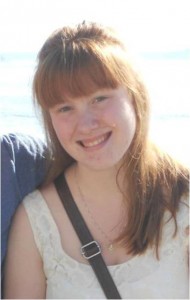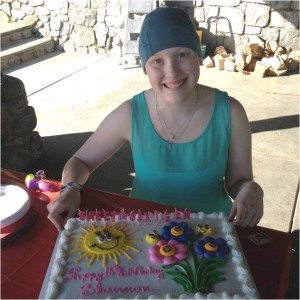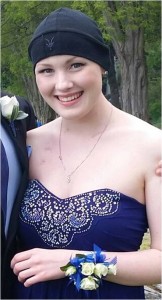
Shannon Keating always imagined that she would be a mom some day, but she didn’t expect she’d be treated at a fertility clinic at age 17. Shannon was diagnosed with Hodgkin Lymphoma as a high school sophomore, was successfully treated and then relapsed nine months later. As she prepared to fight for her life a second time, experts at Seattle Children’s Hospital helped her preserve her dream of being a parent one day.
A devastating diagnosis
Shannon was first diagnosed with Hodgkin Lymphoma in March 2013, after she discovered a lump on her neck. The treatment was six months of less-aggressive chemotherapy that oncologists did not believe would affect her fertility.
“I was relived that this therapy was less toxic, but when it was finished I didn’t feel like I was done,” Shannon said. “I had this feeling hanging over my head. I believed my cancer would come back.”
Unfortunately, Shannon was right. That December, her cancer relapsed. Facing a life-threatening illness once again, she learned her second round of treatment would be more aggressive and could cause infertility. Doctors offered her the opportunity to freeze her eggs so that she might later become pregnant using in-vitro fertilization, but Shannon was initially overwhelmed.
“I was already trying to deal with my cancer coming back, I didn’t want to have to make decisions about my fertility on top of that,” she said. “At first, it just felt like too much to handle.”

Offering guidance
Thankfully, Seattle Children’s fertility preservation specialist, Leah Kroon, counseled Shannon and her family through their fertility preservation options. She connected them to a fertility clinic, helped them book their appointments, and clearly explained their options.
“It’s hard for a teenage girl to wrap her head around everything that’s involved with fertility preservation,” Kroon said. “Freezing eggs requires multiple vaginal ultrasounds and hormone injections, which teen girls have likely never experienced. We’re very honest about what’s involved and make sure they understand what to expect. No matter what they decide, we support them in that decision.”
Shannon’s mom, Mary Keating, appreciated Kroon’s guidance through the process.
“Seattle Children’s was so helpful at such a challenging time,” she said. “Leah was always available to answer our questions and supported us through the process. She always checked in to make sure we had everything we needed.”
Financial challenges
Shannon opted to freeze her eggs through Seattle Reproductive Medicine, but that choice came with a big price tag. Egg freezing is not covered by most insurance plans, so even with financial assistance from LIVESTRONG Foundation, the Keatings would have to pay $5000 out of pocket. Thankfully, Seattle Children’s worked with the family to reduce their other hospital expenses.
“We wouldn’t have been able to afford it without help from Seattle Children’s,” Keating said.

A hopeful future
Shannon’s egg harvesting procedure was quite successful. Despite her cancer history, doctors were able to harvest 16 mature eggs from Shannon, enough to secure her chances of having at least three children one day.
“Patients don’t always know that they might be able to freeze eggs after having treatment,” Kroon said. “There’s no guarantee that they will be successful, but many young women have enough remaining eggs that it’s worth considering. It’s welcome news to those who couldn’t do it prior to starting their treatment.”
After harvesting her eggs, Shannon had two months of chemotherapy followed by a stem cell transplant and radiation. The treatment was aggressive, but she is currently cancer free.
“Even after I relapsed, everyone at Seattle Children’s believed I would have a future,” Shannon said. “I’m so glad I froze my eggs and I now know I will be able to have my own children one day.”
Resources:
- Seattle Children’s Cancer and Blood Disorders Center
- Seattle Children’s Adolescent and Young Adult Cancer Program
- Cancer Treatments and a Woman’s Fertility
- Cancer Treatments and a Men’s Fertility
- LIVESTRONG Foundation fertility assistance

